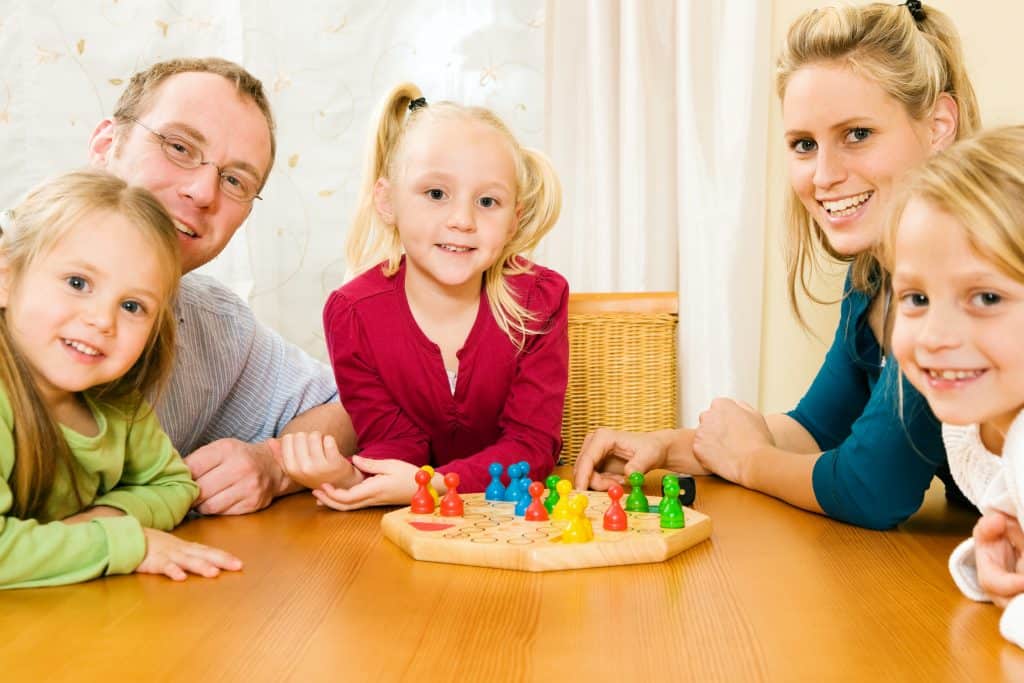If you want to move to the punishment-free parenting model, you must first establish a strong, intimate relationship with the child so that he simply wants to follow your advice and instructions.
Positive parenting is a challenge in itself.
If you’re one of those parents who wants to change tactics and stop punishing children, you don’t just need to do away with punishment.
Start strengthening your relationship with your child so that your child respects you and can follow your rules.
But to do this, you need a positive balance in your relationship.
This means having about five positive interactions between the two of you.
A positive balance isn’t built by buying things.
Next, think about how to teach the lessons you want your child to learn.
Punishment, removing privileges or increasing household chores are approaches that should teach him a lesson.
But research shows that children in these situations become preoccupied with punishment instead of feeling sorry for what they’ve done.
They usually don’t even think about how to change their behavior because their brains simply don’t work that way.
Most parents want to teach their children that :

- Their actions affect everyone around them.
- They can choose their behavior and be responsible for their actions.
- We all make mistakes.
- When we make a mistake, we have to make things right, and that’s a lot harder than making a good decision in the first place.
- When we show how our actions affect the world, it helps us to be smarter next time.
- It takes courage to do a good thing, but when we do it and choose our actions responsibly, we become a person we admire and are happy with ourselves.
Here’s how to stop punishing children in 12 steps:
1. Separate yourself from anger and turn to empathy

Once a child realizes you’re on his side, he feels safe to tell you what’s going on.
Without a sense of security, a child’s heart grows cold, as it constantly awaits condemnation and punishment, and you have no influence over it.
The moment you get angry, tell your child that you need time to think and calm down before talking about what happened.
2. Start a conversation with a warm approach

Children of all ages, including teenagers, respond better to such an approach and will allow you to direct them sooner.
If they’re afraid of upsetting you, they’ll go into “run, fight or freeze” mode and say nothing.
In such situations, they’ll lie sooner.
The only way to teach your child a lesson is to create a safe environment.
Keep in mind that your child has a reason for doing what he does.
It may not seem like a good reason to you, but it is.
3. Tell your child you want to hear him think about what happened.

Let him talk.
Reflect on what he says about his understanding of the situation.
For example, “I understand… Your friends want to play soccer, but this is the only time you can study for an exam? That’s a tough choice.”
Or, “You’re angry at your sister. I’d be angry if someone said that to me…” .
4. Focus on connecting with the child and understanding the situation from his or her point of view.

This will help you understand what motivated him/her.
This will give the child the opportunity to go through the feelings or needs that led to such behavior.
Children always know what the right choice is, but something’s bothering them.
You may discover through conversation that he’s very worried about whether and how society will accept him, so he’s decided to go to soccer to make the team.
Maybe he really needs your help to resolve his acceptance dilemmas in society, after which he’ll be much more focused on academic success.
By simply punishing, you’d never know.
You’d lose the opportunity to recognize the problem and find a good solution if you came across a similar obstacle again.
Since punishment doesn’t help solve his problem, he might do the same thing again in this situation, he’ll just make up a story to “cover” for you and not make you angry.
5. Ask open-ended questions instead of sharing lessons

Keep the conversation safe and easy.
It’s also great if you can joke around because you’ll both relax and connect.
So try to remember that this conversation is important to both of you and you’ll both be richer for it.
Sample questions:
- Did you know you had a choice?
- What made you decide?
- How do you feel about your decision now?
- What are the advantages of this decision?
- What are the disadvantages of this decision?
- Was it worth it?
- Did you know deep down that this decision was a bad idea?
- If so, why didn’t you listen to your inner voice?
- Would you do it again?
- Why or why not?
6. Empower your child to mend fences

Research and learn with your child, rather than assuming you know what to do.
Once a child senses that you’re no longer in control of your feelings or unmet needs, and sees the results of his or her actions (falling on a test, an injured sister, a broken window…), he or she will begin to feel regret.
This only happens after he’s dealt with his feelings and needs.
Once these feelings stop controlling him, his kindness will reveal itself.
Everyone naturally wants to make things better.
You can ask him:
- What can you do now to make things better?
- Has this incident indicated something in your life that you’d like to change?
- How can I support you?
7. Resist the urge to intervene with punishment

Instead, be quiet and listen.
The whole situation isn’t about punishing, losing privileges and saying that something bad is going to happen to her now.
It’s about understanding that what he does has an impact and that responsibility must be accepted.
8. What if he thinks nothing needs to be changed?

He’s always in a defensive state.
Say something like, “Honey, I understand why this happened and why you did it… But that doesn’t mean your choice had a good outcome… You’re upset… Let’s take a break now and talk later.”
Give your child a chance to calm down.
When you start talking again, start with compassion.
This will help him heal his hurt feelings.
You can also take some responsibility by saying: “I think it’s partly my fault… I didn’t realize that…”.
Define clearly that the child just needs to find a solution, that you know he’ll understand it and that it’ll be a great way and that you can’t wait to see what it is.
9. Your power – as an adult, you have more power than you think

If a brother has hurt his sister, this gives you the opportunity to discern what the problem is.
If the child fails the test, you have the opportunity to define the rules differently and prioritize homework and how you can help the child.
Usually, when we give a child the support he needs, he exceeds our expectations.
Some children need more support than others.
Think about what kind of support your child needs.
10. Set limits

If, for example, a child breaks a family rule, repeat and re-establish it:
- Homework comes before play.
- I expect you to use words and tell your sister when you’re upset.
- No name-calling!
11. Don’t save the day

Sometimes you’ll find yourself in a situation that goes beyond the family.
Your child may be caught behaving inappropriately at school, have a car accident or drink alcohol with friends.
Resist the urge to save him from the consequences of his actions.
If you do, he won’t learn anything from the incident.
Because of this, he’ll probably behave like that again.
Instead, listen, empathize and show that you love him unconditionally.
But be very clear in your decision that he must pay a price for his behavior.
12. Be prepared for a period of adjustment

As with any transition, a change in parenting role will be new territory for you and your child.
You’ll both be learning.
We all do our best as parents.
But if you’ve punished so far, the child has listened out of fear.
Once you stop punishing, he stops listening.
That’s why it’s necessary for you to give priority to repairing your relationship because your child WANTS to cooperate with you and because he doesn’t want to disappoint you.
Otherwise, he’ll just bend your rules.
Hi all, I am Sidney, an accountant, a hobbyist photographer, and a mother to two sweet girls who are my motivation. I love sharing the tips and tricks I gained all these years I’ve been a mother. I hope it will help you!

